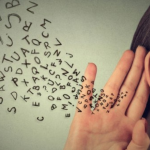Improving social skills with the concepts of “me” and “the other”
With this article we will take a dive into the development areas that will show you how to improve social skills as a teacher, which is of great importance for the learning process. The first step is to differentiate “me” from “the other” and then to put ourselves on the line and practice. Keep reading to learn more!
ME
With the concept “me” we are talking about the entire human race. Calling ourselves “me” instead of the term used for our role in education (“teacher”, “educator”, etc.) allows us to connect directly with who we are and not with the mask that we used at our jobs. When I use this “me” at work, I am able to put into practice my whole potential, I can be myself with my weaknesses and virtues, I can be truthful and authentic. My students will then see two key elements:
- Coherence, which leads to credibility.
- A real human being, which leads to trust.
Talking and thinking about “me” allows us to become leaders and protagonists of the change we want to see. We can act by using ourselves entirely and not just the part that identifies with the teacher prototype that we have subjectively created.
THE OTHER
The other can be defined as anyone from our relationship circle, without any specific category. We often discuss about how to develop trust with the children, how to establish good collaborations with our coworkers, how to talk with parents, etc. But we rarely talk about how to improve our social skills, in other words, interpersonal abilities as a teacher, in general. Thinking about our relationships by putting ourselves at the center gives us the possibility to be the directors of these connections. Positive and constructive rapports are then possible no matter the role of the other person in front of us.
THE IMPORTANCE OF PRACTICE
Without practice, “me” and “the other” remain isolated and independent. In order to evolve interpersonal skills, a clear system needs to be applied and work out. This process of building relationships with students, parents and others used to be designated to the educator and developed over time through experience in social contexts, not specifically taught. School only gave us knowledge and information with the goal of increasing professional capacities and building new technical competences.
As a consequence, society now is saturated with facts and concepts, we have become know-it-alls that have the possibility to study anything and everything (we can even watch a tutorial on how to build a skyscraper!). What we do not know is how to apply what we know, and this is because we have never put it into practice. It is time to practice and to offer opportunities to children to develop their social skills at the same time.
Find out about L’ORMA’s work in the educational field in our Facebook page.


